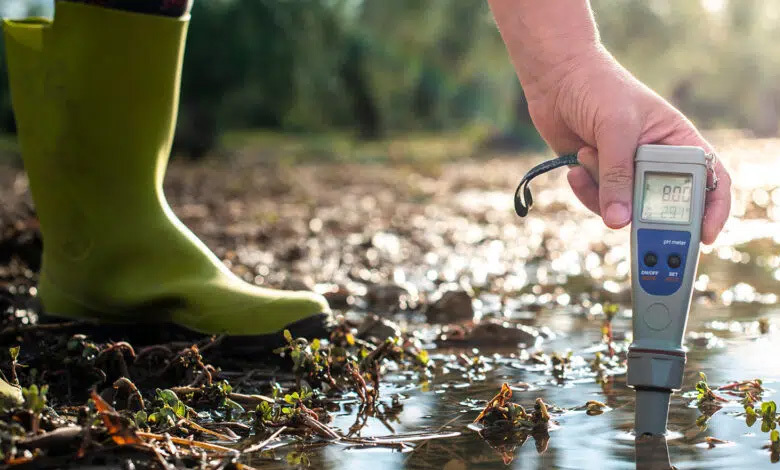England Announces New Approach to Water Monitoring Standards

In a significant policy shift, England has declared its intent to diverge from the European Union’s (EU) water monitoring standards. The decision, announced by UK officials, is seen as a step towards reclaiming regulatory independence and taking charge of its environmental governance. While the move is sure to spark discussions on the future of environmental protection in the post-Brexit era, it reflects England’s commitment to shaping its environmental policies in a manner that aligns with its unique needs and priorities.
The EU’s water monitoring standards have long been a benchmark for environmental regulation across the continent, including in the United Kingdom. However, England’s decision to chart an independent course in this area underscores the evolving landscape of environmental governance and the pursuit of tailored solutions for its ecological challenges.
This move carries the potential for significant implications, ranging from diverging standards on water quality to administrative processes for safeguarding water resources. However, it also underscores England’s desire to craft regulations that are more attuned to its specific requirements while maintaining high environmental standards.
The decision to diverge from EU water monitoring standards has been met with varied reactions, both domestically and across the English Channel. As environmental experts, policymakers, and activists contemplate the consequences, it is essential to understand the motivations behind this landmark shift and its potential ramifications.
A Quest for Regulatory Independence
England’s divergence from EU water monitoring standards comes as part of a broader effort to establish its autonomy and reshape its post-Brexit regulatory landscape. One of the foundational principles of Brexit has been the reclaiming of sovereignty over domestic regulations and the ability to set policies that are uniquely suited to the UK’s needs.
Historically, EU directives and standards played a crucial role in shaping environmental regulations across member states, and the UK was no exception. However, post-Brexit, there has been a concerted push to take control of environmental governance.
The decision to diverge from EU water monitoring standards should be seen in this context, where the UK government seeks to assert its ability to craft policies that may deviate from continental norms but are designed to suit the British Isles’ distinctive environmental characteristics.
Addressing Unique Ecological Needs
England’s environmental landscape varies significantly from that of its European neighbors. The diversity of ecosystems, geographical features, and water resources across the country makes it a unique ecological entity. As such, tailoring environmental regulations to address these distinct requirements has been a central theme in the country’s post-Brexit policy approach.
The decision to diverge from EU water monitoring standards should be understood as a means of crafting standards better aligned with England’s specific environmental challenges. By having the flexibility to determine its water quality benchmarks and monitoring processes, England aims to address issues specific to its landscape.
Challenges and Opportunities
Diverging from EU standards, while providing flexibility, also presents challenges and concerns. Environmental advocates argue that it could lead to a decline in water quality if England’s new standards are perceived as less stringent than EU counterparts.
Another concern revolves around the potential impact on trade and cooperation. In the wake of Brexit, maintaining harmonized environmental regulations with the EU is essential to ensure the smooth exchange of goods and services. Diverging from EU water monitoring standards may necessitate additional negotiations and agreements to ensure that cross-border trade remains unaffected.
Furthermore, this move could create a complex patchwork of regulations within the UK, as Scotland, Wales, and Northern Ireland may choose to maintain alignment with EU standards, potentially resulting in regional disparities in environmental protections.
However, there are also opportunities for innovation and tailored solutions. England has the chance to experiment with regulatory approaches that are better suited to its environment, potentially leading to more effective and efficient practices in water monitoring and management.
Read More: EU’s Climate Commissioner Bolsters Ties with Chile Ahead of COP28
A Step Towards Environmental Responsibility
England’s decision to diverge from EU water monitoring standards represents a shift towards greater responsibility for its own environmental governance. It demonstrates a willingness to tackle ecological challenges proactively and assert its autonomy in shaping the nation’s environmental policies.
While it remains to be seen how this policy shift will impact water quality and environmental protection, it undeniably marks a significant step in England’s post-Brexit journey. As the country forges ahead with its distinctive approach to water monitoring, the world watches with interest to assess the impact of this pivotal decision. The pursuit of regulatory independence, tailored solutions, and increased environmental responsibility will be central to England’s evolving environmental landscape.



